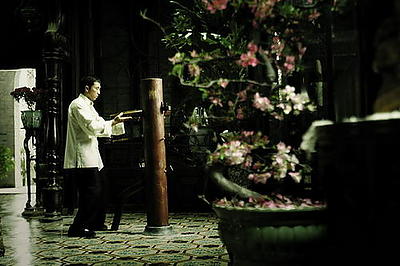Directed by Keralino Sandorovich
Although Japan has produced a number of memorable comedies in recent years, it has also produced a fair share of obnoxious, derivative offerings as well. Keralino Sandorovich's "Crime or Punishment?!?" certainly falls into the latter category, suffering from poor pacing, forgettable performances, lame jokes, and a seemingly non-existent script all of which make Sandorovich's film a comedy that feels like it's both a crime and a punishment
Struggling model Ayame sees her career hit a new low when she is caught shoplifting a magazine in which she has mistakenly been placed upside down. As a form of community service and public relations patch job, her agent gets her a gig as "Police Chief for the Day" at the local precinct. The job description, however, is much thornier than Ayame had originally believed. Before long, she's being counted on to do serious police work and is soon in control of the entire police force.
"Crime or Punishment" appears to be devoid of any central planning, a mishmash of loosely linked ideas that seem to have been tossed up onto the screen, given a stir and expected to come out looking sleek and cohesive. Unfortunately for Sandorovich, you can't simply string together a bunch of unconnected ideas and call it a movie no more than you can polish a turd and call it gold. To be sure, there are some funny moments in "Crime or Punishment?!?" but a comedy, especially one that focuses on delivering a rather base type of humor, should deliver more than the occasional chuckle. Sandorovich's film also comes off as a poorly executed rehash of a film I've seen a hundred times before, the kooky, slightly off kilter, devil may care asian comedy. I think a tip of the cap is always in order for a director that really goes out of his or her way to make an original film yet comes up short. On the other hand, directors who insists on making a movie that's neither original nor particularly challenges the genre in any way better be sure to provide a solid effort or their failure will only be more evident. Sandorovich's film certainly breaks no new ground and does a poor job of aping its more succesful predecessors. A poor effort, to be sure.

